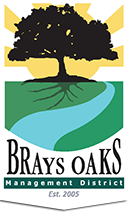 Houston’s Livestock Show and Rodeo is a busy time for the students at Lamar High School who participate in Future Farmers of America Association (FFA) programs. But their commitment and responsibilities to livestock do not begin and end for just this short season.
Houston’s Livestock Show and Rodeo is a busy time for the students at Lamar High School who participate in Future Farmers of America Association (FFA) programs. But their commitment and responsibilities to livestock do not begin and end for just this short season.
All year you will see students tending to livestock and helping to maintain the farm that houses the school’s programs at 11611 Riceville School Road in the Brays Oaks Management District. They share the farm property, owned by Houston Independent School District, with Bellaire High School’s FFA program. Lamar’s portion is 17 acres.
Through their club, Lamar students learn about agriculture in preparation for potential careers in animal and/or plant sciences. These could include landscape architecture, agriculture careers and veterinary science along with other work with animals. They get to take care of livestock, and some students can choose to learn beekeeping on the grounds.
Local resident Sharon DuShane Young, mother and grandmother of Lamar Houston FFA alumni and a club booster, offered a wealth of knowledge about the facility and the program. Her granddaughter Kat has just begun a teaching career in agriculture due to her past involvement with Lamar’s FFA.
“FFA is a family affair with an active booster club,” Young said. “Leadership is also a core component of the curriculum, and students and alumni speak to groups about their experience.”
A walking tour of the farm with her led to a true rural feel in the middle of a busy Houston suburban area. Aside from the barn and stable in use, a beautiful new barn facility is just awaiting build-out of pens so that students can transfer their animals to the state-of-the-art building.
 She pointed to the out-of-the-way bee-keeping area, saying that students can earn quite a bit of money from selling honey during the school year. One student sold $2,000 worth in a year.
She pointed to the out-of-the-way bee-keeping area, saying that students can earn quite a bit of money from selling honey during the school year. One student sold $2,000 worth in a year.
This is a busy season for the for FFA clubs as they have the opportunity to participate in the Houston Rodeo and Livestock show by entering an animal in livestock show competition or participating in the Calf Scramble, where they can win funds to purchase a steer. Field trips to the rodeo are also part of the schedule.
Elisa Infante, one of three FFA teachers at Lamar, has worked at Lamar since the start of her teaching career in 2015. And she is a graduate of a high school FFA program.
The other teachers are Emily Hernandez and Wendy Skrobarczyk.
Infante described what her students must commit to if they choose a livestock animal: About 30 students have purchased such an animal to tend to this year, about half the club’s enrollment.
“(Students) pay for their animal, they pay for feed, and they pay other fees,” Infante said. “They are out there twice a day, seven days a week, morning and after school, feeding, grooming, and taking care of their animal and making sure their pens are clean. There is no sleeping in on weekends, and if they have to miss a day, they are responsible for finding someone who can do it for them.”
The same job awaits students all summer as well, and they must arrange their own transportation to the Riceville School Road facility.
The cycle for raising livestock and then selling them for meat and by-products ranges for the types of animals students select. Care for a lamb or goat requires a cycle of seven to eight months. Cattle require a commitment of one to two years.
Students then have an option to participate in the livestock show with their creatures — if their lamb, goat, pig, chickens or rabbits qualify by breed and weight.
Livestock judges rank the animals on measures such as structural correctness, muscle definition and fat deposition. If the animals win a competition honor, they are then auctioned off, completing the student’s project.
 A visit with the animals in their pens at the farm facility raised the question of how students who bond with and care for their animal can then part with them, knowing their fate.
A visit with the animals in their pens at the farm facility raised the question of how students who bond with and care for their animal can then part with them, knowing their fate.
Students learn that the animal they raise is not a pet. So some students try to avoid forming emotional attachments to their animal, Infante said.
Lamar teachers have seen every range of emotions displayed by students as animals are sold for slaughter.
“We have had vegan and vegetarian students opt to sell to a farm or an owner rather than being processed, and we support those decisions as well,” Infante explained. “We teach the entire science behind the meat industry, and they learn the natural process of this.”
The club’s annual fundraiser, livestock show, and barbecue will be held at Lamar High School’s front lawn April 28-30.
For more information on Lamar High School’s FFA program, visit www.lamar.ffanow.org
— By Arlene Nisson Lassin









